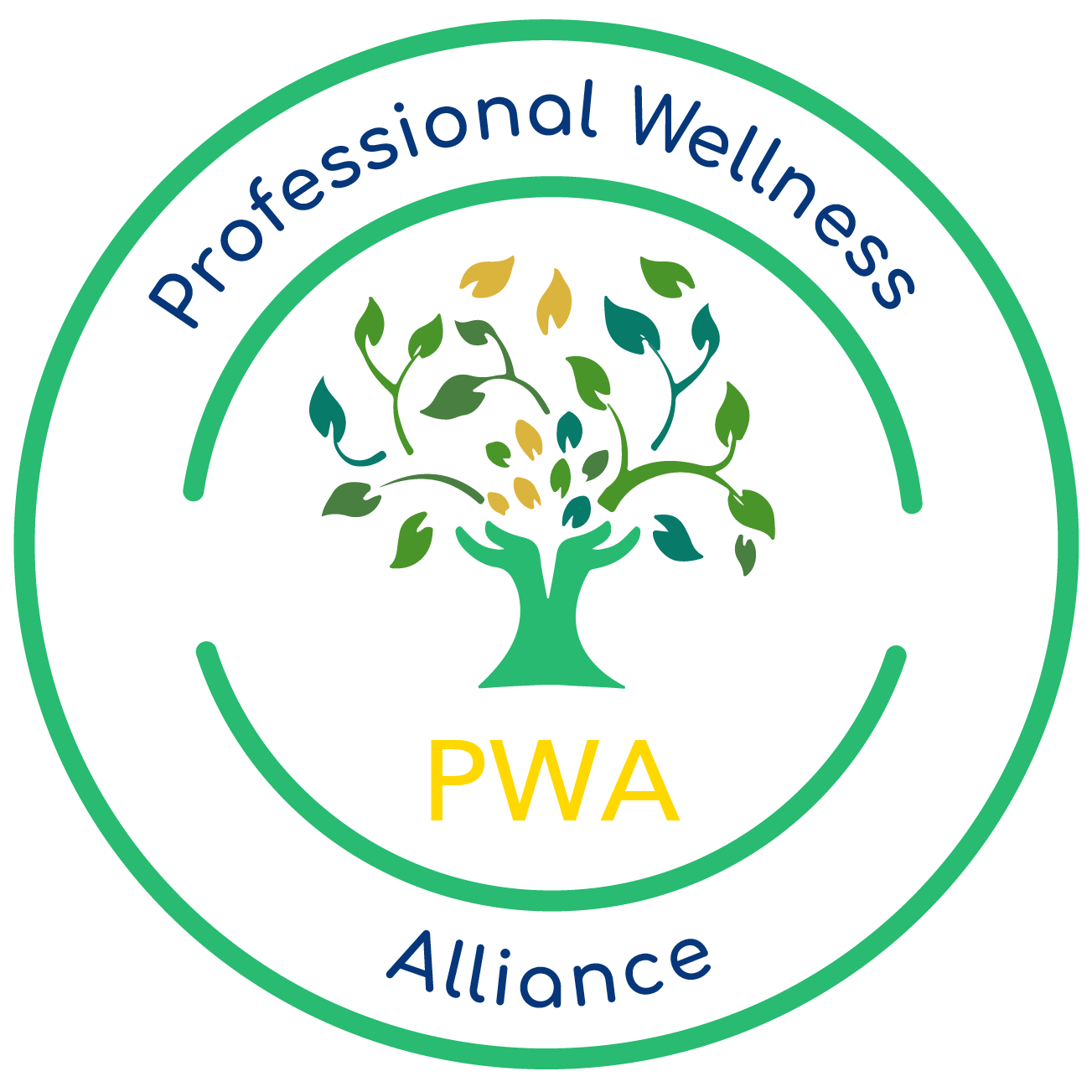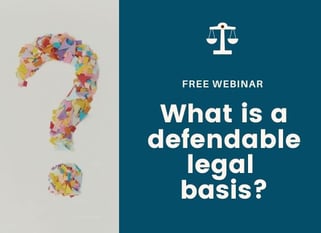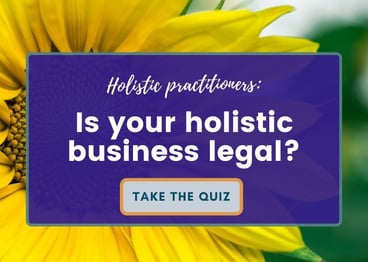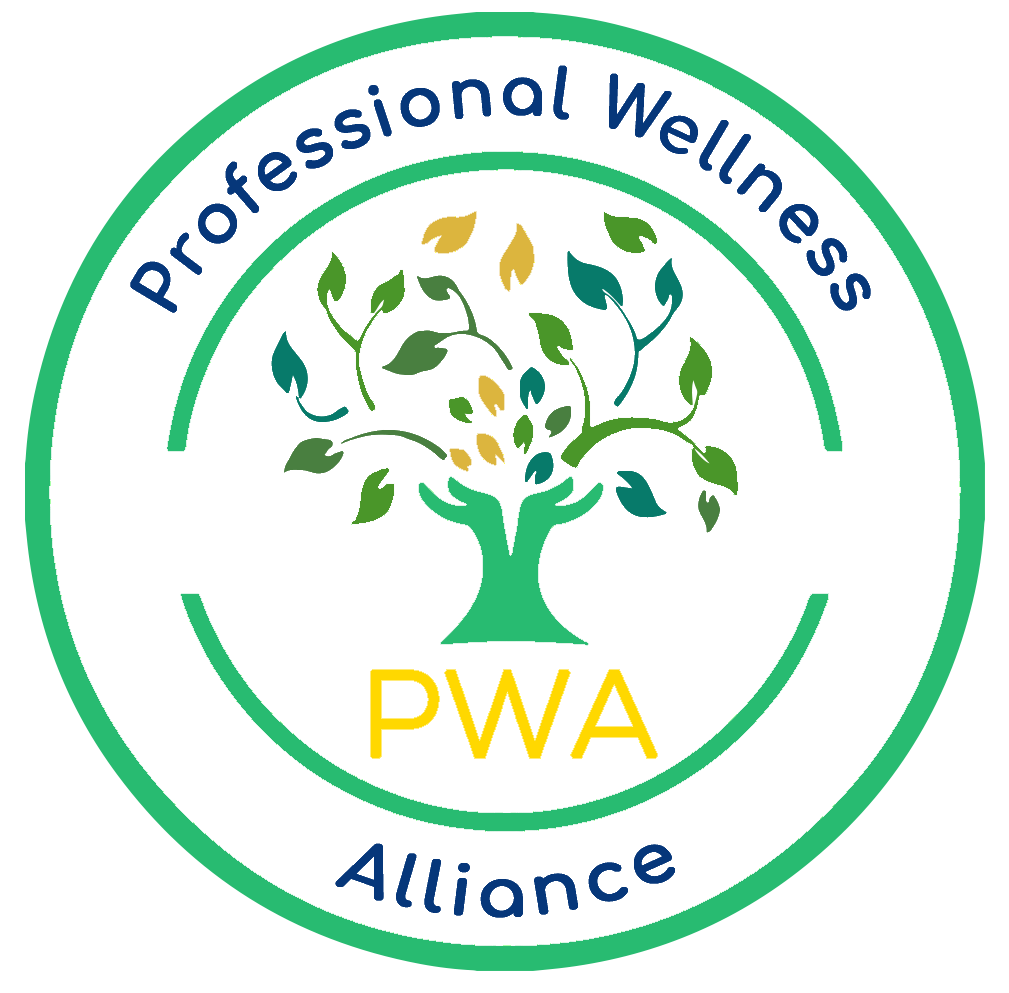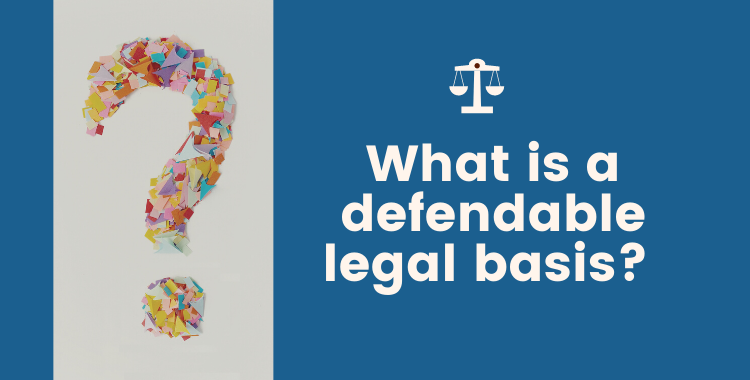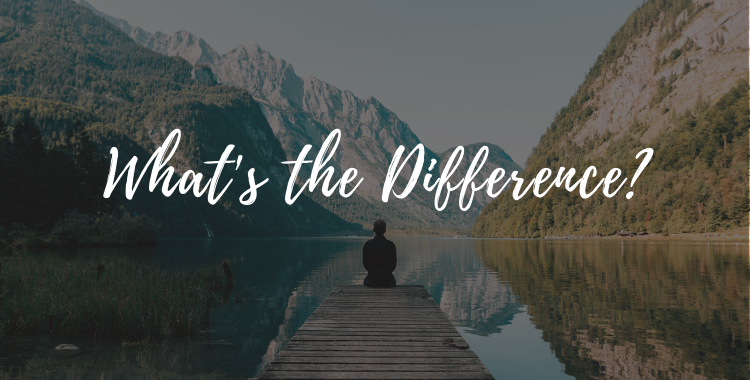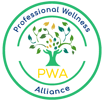Before offering any services outside of the scope of a current state-licensed practice, it is important to know the regulatory realities and legal implications of incorporating additional holistic health specialties.
Why are practitioners branching out into holistic services?
Across the United States, practitioners are responding to the growing demand from current patients for holistic services. For example, practitioners who are state-licensed in fields such as chiropractic, massage therapy, naturopathy and counseling want to start offering more holistic therapies such as essential oils, reiki, energy healing, nutrition and herbal remedies, functional health and wellness, and many others.

Can state-licensed practitioners offer holistic health services within their existing practice?
In most cases, it is possible for state-licensed practitioners to integrate other holistic health services into their existing practice. BUT it is very important to make sure that these services are offered with a solid and defendable legal basis.
With state regulatory board crackdowns on practitioners providing holistic  health services ramping up in many U.S. states, it is getting harder for state-licensed practitioners to offer holistic health services without putting themselves and their business at risk.
health services ramping up in many U.S. states, it is getting harder for state-licensed practitioners to offer holistic health services without putting themselves and their business at risk.
Recent legal changes and court rulings are impacting practitioners across many areas and specialties. It is more important than ever to understand how to provide holistic health services safely and legally.
For instance, the PWA License Program allows state-licensed practitioners to offer complementary holistic services in a safe, legal environment.
So, then do I need a separate license to offer holistic services?
Yes, you need a separate license because your current license only applies to the specific field that you are licensed for. If you offer holistic services outside of the scope of your state-licensed field, you are putting your entire business at risk of legal consequences.
You could be in danger of investigation and legal repercussions from your state’s regulatory boards, getting a cease-and-desist order, losing your business and getting fined. You could even lose your existing state license.
 For example, some holistic practitioners do have a state license for a field that is regulated (such as massage therapy), but it doesn’t cover the scope of their additional holistic services (such as cupping or essential oils), leaving them vulnerable to legal action by state regulatory boards.
For example, some holistic practitioners do have a state license for a field that is regulated (such as massage therapy), but it doesn’t cover the scope of their additional holistic services (such as cupping or essential oils), leaving them vulnerable to legal action by state regulatory boards.
How can I incorporate holistic health services into my existing practice safely and legally?
In the United States, there is no standardized system across all of the states regulating holistic health services. Therefore, state governments are responsible for regulating credentials, and this varies greatly depending on the state and holistic health service in question. While a state license may provide some holistic services in its scope of practice, some states don’t even issue a license for certain types of holistic services.
Given the climate of increasingly strict enforcement and stricter state regulations, many practitioners are hesitant to offer holistic health services outside of their state-licensed field. Their concerns are well-grounded. Yet they shouldn’t stop practitioners from offering much needed and sought after holistic health services.
To protect yourself and your business from legal problems, you need a defendable legal basis that will provide you a solid legal defense for any holistic health areas that are not explicitly covered by your existing state license.
The best way to protect yourself from legal consequences is to obtain a license like the one offered by the Professional Wellness Alliance (PWA) to integrate holistic health specialties in addition to your current practice. A license like this increases your credibility through training and verification, keeps you accountable to standards and ethics, and demonstrates that you are a quality practitioner in the holistic health specialties that you offer.
What if I offer my services online?
Even if you offer services online, remotely or through distance healing, state regulatory legislation still applies to you according to your state. Even if you have no physical contact with your clients, and you are only in contact with them over the internet or phone calls, you can be subject to investigation and repercussions, just as if you had been providing in-person services.

Take the case of Donna Harris in Mississippi for example. She was offering holistic nutrition advice online through her Facebook page, and has been threatened with fines and jail time by the state.
What if I want to add multiple holistic health modalities to my current practice?
You will want to have a license that covers you for each and every holistic health specialty that you wish to integrate into your existing business. The PWA License Program, for example, gives you a defendable legal basis for all holistic modalities across every state.
Also, it increases your credentials by verifying your training and making sure you have the understanding to offer specific holistic health services.
What are the main hoListic health specialties that state-licensed practitioners want to integrate into their business?
Here are a few of the most popular holistic health areas that state-licensed practitioners want to integrate into their existing practice:
Essential Oils
Essential oils are derived from plants and are used in aromatherapy with the aim of improving health, well-being, and emotional state. It is often used with massage therapy to ease symptoms such as nausea and pain and to reduce stress and anxiety. Yoga teachers are also known to incorporate essential oils into their classrooms as well.
There are various methods for using essential oils such as massage in which diluted oils are applied to the body with a carrier oil, direct inhalation for example from the hands or in the vapors of hot water, or indirect inhalation with a diffuser or cotton ball.

Raindrop therapy is also on the rise and popular among massage therapists, reiki and holistic practitioners. Raindrop therapy combines massage, reflexology, and aromatherapy through the layered application of specific essential oils and blends to the feet and back. A key component of the technique, and the origin of the “raindrop” nomenclature, is the dropping of a specific sequence of undiluted essential oils six inches above the back, directly onto the spine.
Before integrating essential oils into an existing practice, it is important to know the complex and specific laws regarding exactly how to do so, without violating state regulations. For example, applying a particular essential oil during a massage or advising a client on a type of oil to use for a certain symptom is something you can only legally do if you’re licensed or have a defendable legal basis for it. Otherwise, the state may view this as operating outside the parameters of your state license.
Reiki
Founded in Japan by Mikao Usui in the 1920s, Reiki is a type of energy healing technique now offered by millions around the world. The aim of reiki is to allow life force energy to flow freely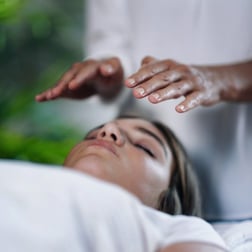 through the physical and energetic body to promote physical, mental, and spiritual balance and well-being. It is known as a “non-invasive” technique because it is usually practiced with minimal to no physical contact.
through the physical and energetic body to promote physical, mental, and spiritual balance and well-being. It is known as a “non-invasive” technique because it is usually practiced with minimal to no physical contact.
Although massage and reiki are two different modalities, the two have been combined into a complementary therapy known as reiki massage. Because reiki includes light placement of hands without pressure, it can be a pleasant and harmonizing complement to almost any type of massage.
Nutrition & Herbal Remedies
Perhaps you've considered incorporating herbal remedies and supplements, or health coaching services related to wellness and nutrition into your existing offering. After all, health & wellness and nutrition coaching is the #1 most-requested holistic service from clients today.
Nutrition and herbal remedy offerings can help clients to further increase their feelings of well-being and can empower them to take greater responsibility for their own health.
For example, you may have a state-license as a chiropractor and are now looking to offer functional health and wellness, holistic nutrition, or herbal remedies services in your practice.
Or, you could be a state-licensed massage therapist and would like to offer your clients wellness coaching or herbal supplements as well.
Aside from proper training and certifications, it's also important to make sure you have a solid, defendable legal basis to offer these types of holistic services as a complement to your existing state-licensed practice.
Cupping
Cupping is a technique with roots in ancient and traditional practices in multiple regions of the world including China and Egypt. A practitioner applies cups that may be made of glass, bamboo, clay, silicone or, more recently a rubber pump, directly onto the skin.

Often the practitioner will use fire to create a vacuum in the cup — by burning paper, herbs, or alcohol before placing the cup on the skin. The process creates a suction effect. The cups can be left on the skin or moved around for varying amounts of time. Proponents of this therapy believe that it can help with pain, inflammation, relaxation, and circulation.
The two main methods are “dry” and “wet” cupping. In wet cupping the skin is pierced and a small amount of blood is drawn out. Dry cupping does not involve piercing the skin. State regulatory boards are watchful of cupping because there are important risks such as bruising, burns, scars, infection, changes in blood pressure and the transmission of diseases such as hepatitis B and C, due to improper application by the practitioner or contamination of the cupping equipment.
Energy Healing
Energy healing is a broad term that can encompass multiple modalities including meditation, touch therapy, the Body and Emotion Code, crystal healing, movement therapy, magnetic field energy among others. It is grounded in the idea that health and healing are related to the “life force” present in each individual that includes magnetic, electric and electromagnetic energy fields.
Central to this approach is the idea that life forms, including human bodies, are self-organizing and self-healing. Subtle energy therapies are believed to promote and sustain life processes and overall health.

Functional Health & Wellness
The focus of functional health is on the mechanical aspect of the body, including bones, nerves, muscles, joints and their ability to allow an individual to perform the tasks they need to do in life. Key to this approach is learning how to work with and enhance the body’s physical design, minimizing pain and injury. Individuals are encouraged to take an active, rather than a passive role in their health, seeking long-term solutions for chronic issues and lifestyle changes rather than a temporary or superficial alleviation of symptoms.
There is also an emphasis on preventative holistic care. While conventional Western medicine often focuses on treating symptoms, functional health seeks to identify and address the root cause of disease.
Craniosacral Therapy
Craniosacral therapy aims to relieve pain and dysfunction. Massage therapists and chiropractors are often interested in adding this specialty to their existing practice. Craniosacral therapy involves a light or gentle touch to manipulate the joints of the skull, the spine, and parts of the pelvis. Techniques such as joint decompression, rhythm, and still points are used. It is described as a non-invasive, gentle, hands-on therapy that is believed to enhance the body’s own ability to heal by improving the circulation of cerebrospinal fluid.
Aside from these holistic health modalities, there are several others that state-licensed providers can offer to their clients. The good news is, all of them are protected when you become a licensed member of the PWA community!
It can be tricky to navigate the changing state regulations as they relate to holistic practitioners.
Take our short license quiz to find out if the holistic services you’re providing are legal and, if not, steps you can take to protect your business.
.png?width=350&height=350&name=professional-wellness-alliance-logo%20(2).png)
